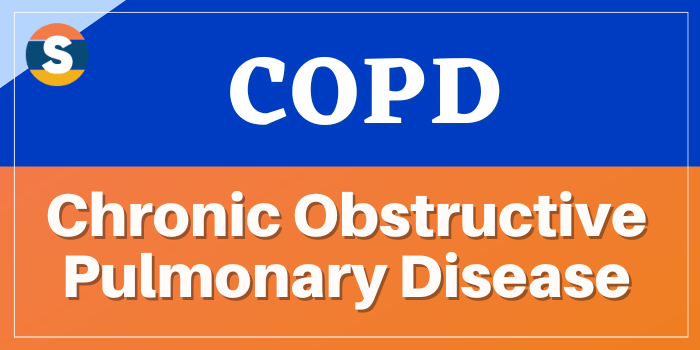
The Full form of COPD is Chronic Obstructive Pulmonary Disease. COPD is a chronic inflammatory lung disease that causes obstructed airflow from the lungs. There are two main forms of COPD, one is chronic bronchitis, which involves a long-term cough with mucus and the other one is emphysema, which involves damage to the lungs over time. Most people with COPD have a combination of both conditions. The symptoms of COPD often don’t appear until significant lung damage has occurred and they usually worsen over time, particularly if smoking exposure continues. For chronic bronchitis, the main symptom is a daily cough and mucus (sputum) production at least three months a year for two consecutive years. Other signs and symptoms of COPD may include: Chest tightness, Wheezing, Shortness of breath, especially during physical activities, having to clear your throat first thing in the morning, due to excess mucus in your lungs, frequent respiratory infections, Lack of energy etc. Tobacco smoking is the main cause of COPD in developed countries. In the developing world, COPD often occurs in people exposed to fumes from burning fuel for cooking and heating in poorly ventilated homes. COPD is treatable. With proper management, most people with COPD can achieve good symptom control and quality of life.